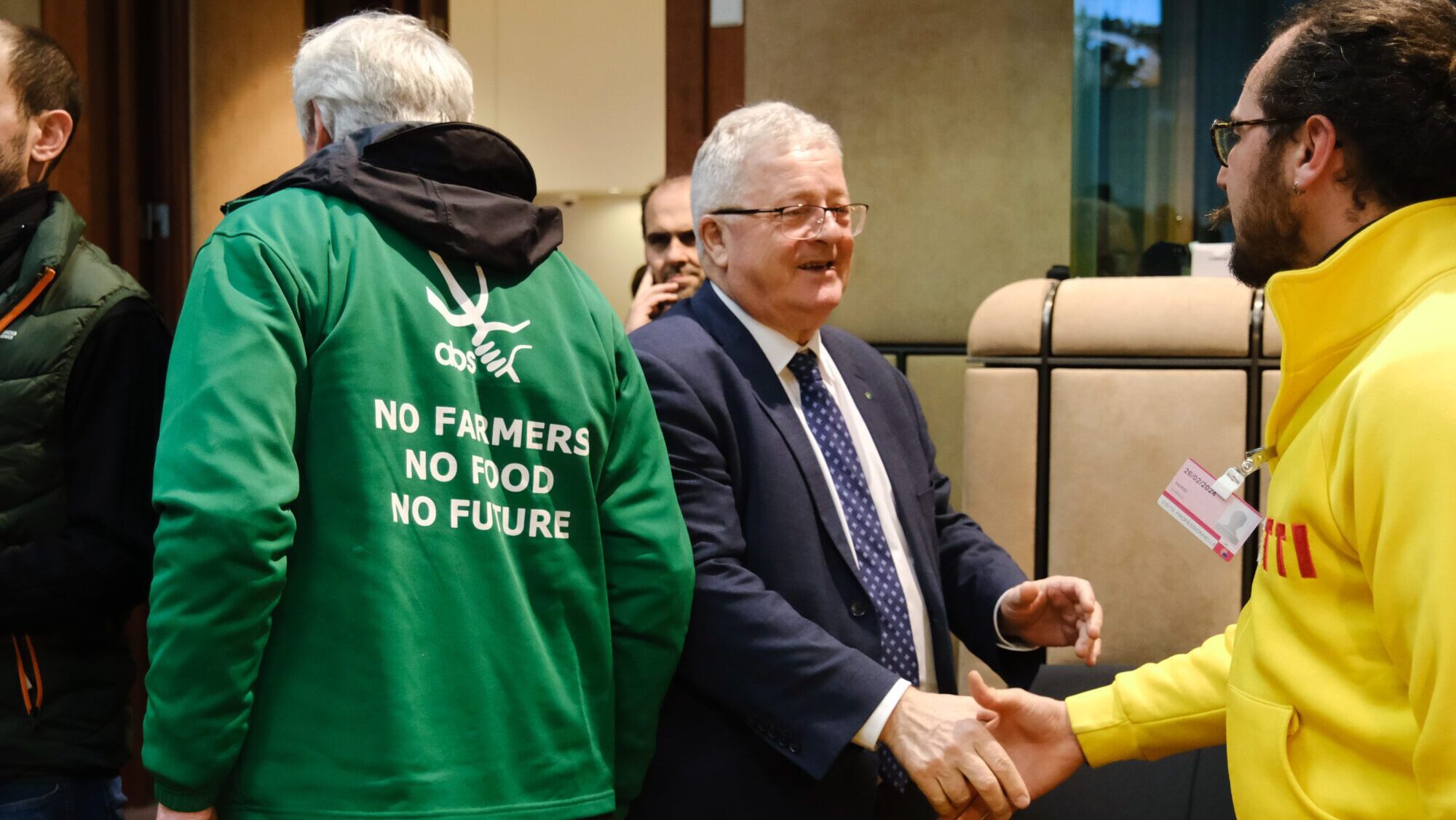EU agricultural ministers have instructed the European Commission to tackle the regulatory difficulties faced by protesting farmers, following a European Council meeting on February 26.
The EU Council “invites the Commission to quickly complete this set of measures, already presented, with more ambitious ones,” David Clarinval, the Belgian minister leading the meeting, told a press conference.
With farmers protesting en masse right outside—backed by simultaneous protests, from Poland to Spain—the ministers were under pressure to deliver for agriculture.
COPA-COGECA, the pan-European farmer’s association based in Brussels, urged the Commission to follow the Council’s lead. The organization said in a statement:
The Council is moving forwards now, and the European Commission must take immediate action after the proposed simplification measures presented last week. Farmers in the EU need effective simplification and to have the burden of controls on their farms reduced.
It is now finally being recognised that there is a new context (COVID-19, war in Ukraine, climate change and inflation) that calls for new effective decisions to provide urgent solutions for the agriculture season starting in a matter of weeks.
The ministers’ meeting centered on a set of proposals prepared by the Commission, but Clarinval—Minister of the Middle Class, SMEs, Self-employed, Agriculture, Social Integration and Urban Policy—iterated that they “are not sufficient.” The Council wants a combination of more immediate measures from the Commission, as well as long term plans to satisfy farmers and ranchers.
According to EFE Agro, European Commissioner for Agriculture Janusz Wojciechowski has even suggested that the environmental measures of the current Common Agricultural Policy —approved in 2023 and valid until 2027, prompting major levels of farmer discontent—can be renegotiated and changed.
In recent statements, as reported by EFE Agro, the commissioner said it was “theoretically possible to achieve this during the current legislative mandate, before the elections to the European Parliament next June.”
For the time being, the Council has agreed that the process for revising national plans within the Common Agricultural Policy needs to be simplified. Commission-initiated changes could now include:
- Altering rules that require farmers to keep areas of permanent grasslands stable compared to 2018. The existing rules require farmers who had been forced to switch from cattle to crops to revert their cultivated fields to unproductive grasslands.The Commission is now charged with getting the rules revised by mid-March.
- Approving a Commission review of the farmland assessments done through the Area Monitoring System (AMS). The system gives automated analysis of satellite imagery, designed to reduce in-person inspection of farmland. This review is scheduled for March.
- Widening and diversifying cover crop schemes—crops planted in between cash crops to protect soil—to give more flexibility to respond to different geo-climatic conditions. The new guidelines should be out by April.
Amid all this regulatory change, the Commission’s principal work is to draw up new proposals to simplify the administrative burden that farmers bear under the CAP, including reducing the amount of inspections and controls that they are subjected to.
COPA-COGECA has noted that the specific measures regarding grasslands and cover crops are welcome, but highlighted additional specific areas of the CAP that also need immediate changes. It said that the EU has “to ensure European farms receive a fair remuneration within the food chain and a better return from the markets thus contributing to a decent income.”
Farmers in Spain have pledged to continue their protests until they see the government deliver concrete measures to address their most immediate concerns. In the Pyrenees, near the French border, they again used tractors to block one of the principal routes between Spain and France. Spanish farmers are scheduled to meet with government representatives again on Wednesday.
In a statement on the Agriculture and Fisheries Council website, David Clarinval said,
The outcome of our meeting shows we are listening to farmers and we hear them loud and clear. We are committed to helping ease the pressures they are facing and to offering them concrete solutions.
Whether the requests by the ag ministers become reality—and whether they will actually make a major difference to farmers—any minor concessions have to be viewed in the light of the need for Eurocrats to stem a farmers’ revolt during a volatile election year. It also remains to be seen what impact the passing of the Nature Restoration Law in Parliament on February 27th has on the situation of farmers.





